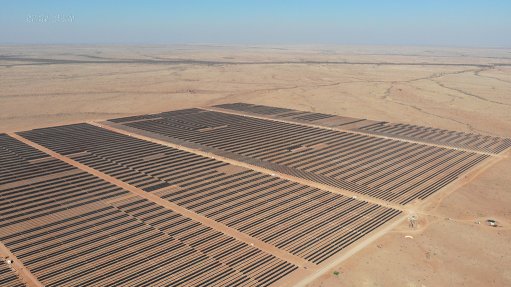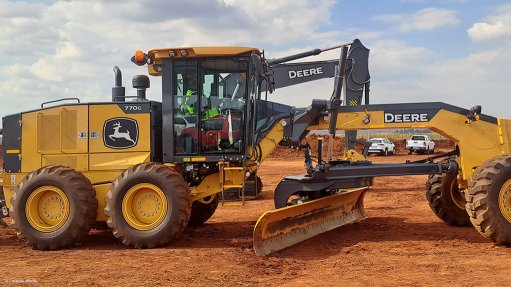South Africa’s economic freedom below world average
While South Africa’s economic freedom rating increased slightly, from 6.74 to 6.8 out of 10 over the past year, it still falls below the global average of 6.87, the Canada-based Fraser Institute’s Economic Freedom of the World: 2013 Annual Report, which is based on 2011 data, stated.
Speaking at the launch of the report’s South African edition, in Johannesburg, on Wednesday, Free Market Foundation associate and author of the economic freedom of the world (EFW) software program Neil Emerick pointed out that South Africa ranked eighty-eighth out of the 152 countries surveyed, which did not bode well for its economy as economic freedom was generally linked to economic growth.
Economic freedom was also linked to the quality of life of a country’s citizens, with research showing that people living in countries with high levels of economic freedom enjoyed greater prosperity, better health and longer life spans, he added.
Emerick pointed out that South Africa was one of only three countries in sub-Saharan Africa to see a worsening of its EFW ranking between 2000 and 2011, the other two being Chad and Togo.
By comparison, Rwanda climbed thirty-three places from seventy-eighth to forty-fifth last year and, in the current report, advanced to thirty-sixth place. The country had averaged 5% per capita growth since the economic crisis, while South Africa barely achieved 1% during the same time.
“Mauritius has moved into the top ten, ranking sixth, and has seen a gross capital formation average of 25% over the past five years, while South Africa has only seen 19%,” Emerick said.
Other African countries that were ranked higher than South Africa were Botswana, Uganda and Zambia.
“Improvements in EFW scores indicate higher economic growth while declining scores predict lower growth. It is time for government to take note of this measure of its performance,” FMF executive director Leon Louw said.
Emerick added that South Africa’s position was mainly as a result of ineffective policy and, in particular, the failure of the country’s labour laws.
He also pointed out that none of the Brics countries, namely Brazil, Russia, India, China and South Africa, ranked in the survey’s top 100.
South Africa ranked 141st out of the 152 countries surveyed with regard to hiring and firing regulations, and 138th with regard to centralised collective bargaining.
“The rankings that we score badly on mostly relate to our labour laws. We have seven-million unemployed people in this country and we cannot say that it is a result of entrepreneurs failing to hire them. It comes down to a policy decision. We have laws in this country that create a labour aristocracy at the expense of others. It is a true tragedy and we have to do something about it,” Emerick said.
Other categories that South Africa scored badly in included the standard deviation of tariff rates, in which it ranked 137th, the business costs of crime, in which it ranked 131st, and general government consumption, in which it ranked 125th.
Emerick further pointed out that the South African government consumed a higher-than-average portion of the country’s economic output, by world standards, adding that its involvement in the production of, and investment in, some of that output was also extensive.
“One should consider the large amount of State-owned enterprises in South Africa. Our government is involved in many businesses that could potentially be better run by private industry,” he said.
Emerick added that he had seen no response or major steps taken on the part of government to improve South Africa’s economic freedom and that, as the situation was worsening it would become increasingly difficult to turn the country around.
Categories in which South Africa performed best included the ownership of banks, impartial courts, freedom of foreigners to visit, money growth and the protection of property rights.
Meanwhile, the report identified the top ten countries with regard to economic freedom to be Hong Kong, Singapore, New Zealand, Switzerland, the United Arab Emirates, Mauritius, Finland, Bahrain, Canada and Australia.
Emerick pointed out that the US, which was once considered a bastion of economic freedom, now ranked seventeenth in the world.
“Owing to overspending, weakening rule of law and increasing regulations on the part of the US government, the US has seen its economic freedom plummet in recent years, compared to 2000 when it ranked second globally,” he said.
Meanwhile, Venezuela had the lowest level of economic freedom, while Myanmar, the Democratic Republic of Congo, Zimbabwe and Chad rounded out the bottom five countries.
Comments
Press Office
Announcements
What's On
Subscribe to improve your user experience...
Option 1 (equivalent of R125 a month):
Receive a weekly copy of Creamer Media's Engineering News & Mining Weekly magazine
(print copy for those in South Africa and e-magazine for those outside of South Africa)
Receive daily email newsletters
Access to full search results
Access archive of magazine back copies
Access to Projects in Progress
Access to ONE Research Report of your choice in PDF format
Option 2 (equivalent of R375 a month):
All benefits from Option 1
PLUS
Access to Creamer Media's Research Channel Africa for ALL Research Reports, in PDF format, on various industrial and mining sectors
including Electricity; Water; Energy Transition; Hydrogen; Roads, Rail and Ports; Coal; Gold; Platinum; Battery Metals; etc.
Already a subscriber?
Forgotten your password?
Receive weekly copy of Creamer Media's Engineering News & Mining Weekly magazine (print copy for those in South Africa and e-magazine for those outside of South Africa)
➕
Recieve daily email newsletters
➕
Access to full search results
➕
Access archive of magazine back copies
➕
Access to Projects in Progress
➕
Access to ONE Research Report of your choice in PDF format
RESEARCH CHANNEL AFRICA
R4500 (equivalent of R375 a month)
SUBSCRIBEAll benefits from Option 1
➕
Access to Creamer Media's Research Channel Africa for ALL Research Reports on various industrial and mining sectors, in PDF format, including on:
Electricity
➕
Water
➕
Energy Transition
➕
Hydrogen
➕
Roads, Rail and Ports
➕
Coal
➕
Gold
➕
Platinum
➕
Battery Metals
➕
etc.
Receive all benefits from Option 1 or Option 2 delivered to numerous people at your company
➕
Multiple User names and Passwords for simultaneous log-ins
➕
Intranet integration access to all in your organisation




















